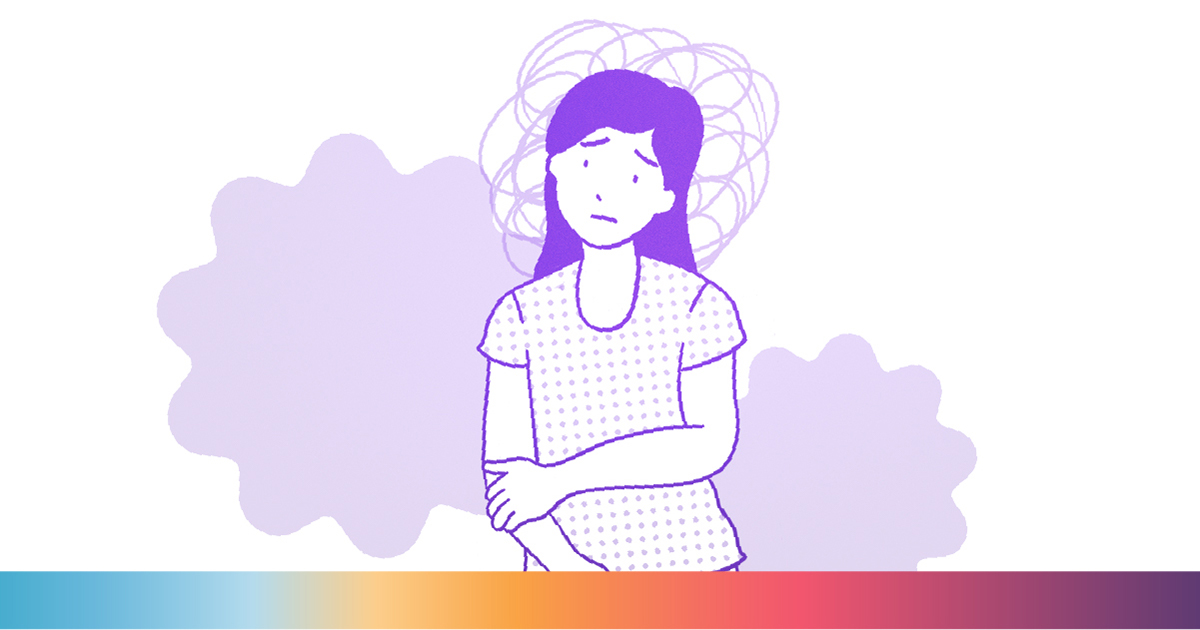
The power of storytelling
This toolkit will guide youth with the fundamental of good storytelling and how to drive advocacy on your platforms through your own storytelling.

Long before I knew I was queer, I quickly discovered that writing my thoughts down on paper was a helpful way for me to understand myself. I love journaling because it lets me decompress, reflect on positive and negative experiences and to process my feelings in a place of my own before sharing with others. Today, I’m going to talk about a few ways that you can try journaling at home and about how this hobby has helped me on my journey of loving myself and embracing my queerness.
I personally really like to “free write” in a stream of consciousness that lets me recount the details of my day to day. This style of writing is often best when I have more time, like when I bring my journal to a coffee shop and pull it out to take a moment to reflect. I find that the frequency of how often I write matches up with the slower or more stressful periods in my life. When I’m feeling good, I find that I don’t journal every single day because I’m busy having so many positive experiences. When I do come back to it, this free writing style is a tried-and-true way to capture any of the big things that have happened during my time away.

Journaling with intent is another fantastic method for exploring something that’s made me feel powerful emotions, whether it be an event, a conversation with a friend or mentor, or something big that’s happening in the world around me. One thing I’ve learned on my evolving journey with mental health is that it can be easy to get swept away in the stresses of life, something that I think we all can understand with these last few years of the COVID-19 pandemic. When life is especially overwhelming, opening your journal and listing the positives or the things that make you happy can really help in grounding your perspective. Sometimes this isn’t easy, when we’re feeling stuck in negative emotions or periods in our life, we might not want to reflect on the things that are good, but I
encourage you to try. Journaling with this focused gratitude mindset gives you a break from the stresses of your day and reminds you of the good things that are also happening in your life.
A journal doesn’t have to be limited to sharing your feelings through words alone. I’m very artistic, so I like to mix things up with sketches and drawings. I typically sketch in black pen in my journals, but the one that I finished during the first year of covid is full of drawings coloured in with bright watercolour paint. You don’t have to follow a strict “Dear Diary” format to get started with journaling, bullet journaling has become popular recently, and some people like to take a scrap-booking approach, adding in ticket stubs from travel or great queer movies with friends that capture the moment. The beauty of this hobby is that it can be whatever you like and that you can change how you do it to fit your needs at any time, the sky’s the limit!


Journaling can act as a time machine, allowing you the unique ability to get reacquainted with a past self. This is probably my favourite thing about journaling and the aspect of it that I have been able to learn the most about myself from. I started journaling steadily as a teenager and kept up with it all throughout university to today. This means that I’ve archived a personal library of at least six or seven full books, each chronicling different years, periods, and meaningful experiences of my life. It can be equally as fun as it is useful to step back in time this way. You’ll find that you can learn from your previous experiences and bring back these lessons to a problem or situation that you are facing in the present. In my earlier twenties, I tended to find
myself in the same situations a lot. Seeing how I handled things in the past taught me a lot about how I wanted to consider doing things differently in the future.

Journaling is one of the best ways in the entire world to express yourself, especially when it comes to voicing questions or fears that you aren’t ready to share with those around you. I felt this a lot when I was struggling with coming to terms with my queerness in high school. As a teenager, I was suddenly confronted with the fact that I had an innocent crush on one of my close friends. It was a very dark time for me, I didn’t come from a supportive, queer affirming family or environment, but I was able to pour out all my confusion, fear, and those new feelings that I had for my friend in a safe and contained space by writing. At the time, journaling was a huge coping mechanism and outlet for me. The questions of “what will others think of me?” and
“will everything be okay?” kept me up at night, but thankfully, I was able to get them out on paper even if I felt like I couldn’t talk to my friends and family. The pages of my journal allowed me to feel it all, the good, the bad, and the soft and gentle as I finally admitted that I liked my friend, even if I didn’t say it out loud.It is incredibly important that queer youth feel supported and loved for who they are, but in my case, I wasn’t certain that if I voiced these overwhelming and new feelings that that would be my experience. When I did eventually come out after moving away, journaling became a place for me to document all the things in this new world that came with exploring my queerness. Sometimes, I go back and read those pages, because they are a beautiful time capsule of a period of pure, queer joy for me.
For any parents who may be reading, I want to emphasize how important this outlet is to queer youth. Just because your child is writing their thoughts privately does not automatically mean that they do not trust you with the things that they are feeling. I want you to take a moment and remember a time when you were particularly stressed or unsure about something in your life. You probably thought about it on your own before sharing with others, right? I would advocate that that is exactly what your child or the queer youth in your life is doing and would strongly encourage you to give them the private space to reflect. Do not go through their journal or whatever outlet they choose to explore their thoughts and feelings, this could be an immense betrayal of trust and if they feel supported, seen, and heard, they will come to you when they are ready.
Journaling has been huge for my overall mental health and for understanding my identity as a queer and mixed-race woman. It has helped me refine my ability to articulate my emotions to myself which has in turn made me a stronger communicator with the people I interact with every day. I’m going to leave you with some journaling prompts and resources that can help you to get started. I hope you learned some ways today that journaling can be an incredible tool for understanding yourself and about how it can be a space to voice questions about queerness at your own pace.


This toolkit will guide youth with the fundamental of good storytelling and how to drive advocacy on your platforms through your own storytelling.

This toolkit explores what it means to have your gender invalidated and how you can support yourself in the face of invalidation.

This toolkit will provide youth with validation, information, and tools for healing through experiences of gender-based violence within their homes or areas of isolation during the COVID-19 pandemic

A guide to connecting with communities online in a safe and beneficial manner to best support you.

